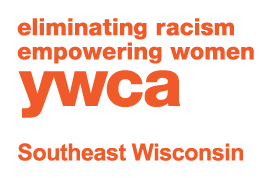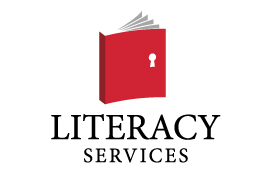
Virtual Workshop Series
When asked, “What do you want to be when you grow up?” it is not often that one responds, “I want to work as an adult literacy educator!”
For this reason, many amazing facilitators, practitioners, and instructors in adult education have actually entered the field in a roundabout way and have not had access to the foundational principles of adult learning theory, strategies, and curriculum development.
Literacy Services of Wisconsin, in partnership with the YWCA of Southeast Wisconsin, is offering a virtual workshop series this fall that will focus on the foundational aspects of adult literacy education.
This series has been developed to support staff, volunteers, partners, and other friends of literacy in thinking more deeply about how they can actively facilitate and enhance their online and distance learning courses in a COVID-19 world.
Choose from a variety of informative topics:
Our one-hour workshops are free and designed to benefit educators of all kinds. Whether you are an expert in the field or a volunteer looking to become a tutor, we know you will find something new to learn. Our Introductory Level sessions are a back-to-basics approach to the fundamentals of teaching. Sessions progressively become more advanced in the Intermediate and Practitioner Levels. Register for one or all of the sessions! Can’t make it? Don’t worry. Those who register will also receive a follow-up email in October with a link to the recorded workshop.
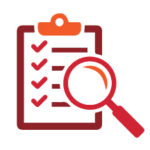
Assessment Series
Focuses on different types of assessment, methods of incorporating assessment, and how assessment impacts both the instructor's plan and the student's learning.
Assessment vs. Test
August 25th, 1:00 pm
Assessment should be incorporated into every lesson. This session will review the different types of assessments and how to determine what’s best for students. We will also take this session a step further to discuss standardized tests and how norming practices may lead to test scores that do not accurately characterize student skill sets.
Presented by:
Holly McCoy & Jake Gorges
Intermediate Level
Backward Planning Using Summative Assessments and Standards
August 28th, 1:00 pm
This workshop will introduce the concept of backward planning, also known as backward design, and how to utilize a student’s learning goals to create a roadmap for learning.
Presented by:
Adriana Vázquez
Intermediate Level
Using Reading Assessment Data to Inform Instruction: Informal Reading Inventories
November 6th, 1:00 pm
Data-informed instruction should be an essential practice among all educators. Learn about how we are adapting reading assessments designed for K-12 students and using them to assess our adult learners’ reading skills and plan for effective reading instruction. In the right hands, data is a mighty tool!
Presented by:
Adriana Vázquez
Practitioner Level

Lesson Planning Series
Focuses on best practices for creating lessons, engaging students, and ensuring lessons meet objectives that are directly tied to a greater curriculum and outcomes.
Lesson Planning: Back-to-Basics
August 20th, 1:00 pm
Lesson planning should be unique to the teacher/facilitator and the specific students within each classroom. This session will focus on the necessary components of an effective lesson. How you choose to use those is up to you!
Presented by:
Holly McCoy
Introductory Level
How to Create Measurable Learning Objectives
September 4th, 1:00 pm
Students will be able to _______ by the end of my lesson. How will you make sure? Join this session to learn about one of the most fundamental aspects of lesson planning and effective teaching = creating lesson objectives.
Presented by:
Adriana Vázquez
Introductory Level
Lesson Planning: Strategies
September 8th, 1:00 pm
Lesson plans are a small part of a larger curriculum picture. We need to think about how we facilitate learning so students are engaging with their academic journey. This session will give an overview and explore some concepts for creating an engaging curriculum.
Presented by:
Holly McCoy
Intermediate Level
Explicit Instruction Through Minilessons and the Gradual Release of Responsibility
September 25th, 1:00 pm
I do, We do, You do. Sound familiar? If not, join us to learn about the importance of clearly modeling skills and scaffolding learning - a simple recipe to set students up for success!
Presented by:
Adriana Vázquez
Introductory Level

Student Experience Series
Focuses on culturally-responsive best practices and intentionally creating diverse and inclusive environments.
Student-Centered Staff Best Practices
September 16th, 11:00 am
Students should feel comfortable from enrollment through completion. Not enough attention is dedicated to creating a welcoming learning environment. This session will look at how effective adult education practitioners make sure the student experience is at the forefront of everything they do.
Presented by:
Janita Bonner & Jake Gorges
Intermediate Level
Teaching for Equity
September 23rd, 1:00 pm
Celebrating the strengths that come from a diverse classroom and learning community, this workshop will help participants learn how to integrate equity learning goals, question traditional concepts, understand diverse students, and evaluate the effectiveness of class material and activities through an equity lens.
Presented by:
Dr. Damira Grady
Practitioner Level
Culturally Responsive Teaching for Multilingual Learners
November 20th, 1:00 pm
Learn about the multilingual learners that study at LSW and some best practices about teaching with respect and responsiveness.
Presented by:
Adriana Vázquez
Introductory Level

Strategies Series
Focuses on practical content-specific strategies that volunteers and instructors can utilize to bridge prior learning for students.
Phonological Awareness
September 18th, 11:00 am
Struggling readers often suffer from poor phonological awareness. Learn to build a strong foundation for readers by incorporating awareness of phonemes, syllables, initial sounds, and rhyming parts. Effective use of these tools will aid in sight word storage and preparedness of phonics instruction.
Presented by:
Bianca Johnson-Ortiz
Introductory Level
Using a Balanced Literacy Approach to Content-Based Instruction
October 9th, 1:00 pm
Join us for a discussion on adapting best practices in early literacy instruction to the needs of adults in content-based classes.
Presented by:
Adriana Vázquez
Practitioner Level
Teaching Reading Strategies for Content Areas
October 23rd, 1:00 pm
We learn to read so we can read to learn! But reading to learn can be hard when you don’t understand what you see on the page. Students need to be shown how to read a history text like a historian and a science book like a scientist. Teaching reading strategies for different content areas is a critical part of adult education. Join us for an overview of practical tips!
Presented by:
Adriana Vázquez
Intermediate Level
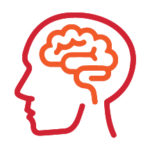
Adult Learning Theory Series
Focuses on andragogy and best practices in the application of adult learning theory.
What is Different in Adult Education?
August 18th, 1:00 pm
Adult education is a field of study. Many people come to adult education as a secondary career. This session will provide an overview of core principals and concepts of adult learning theory and their applications to curriculum and lesson planning.
Presented by:
Holly McCoy & Jake Gorges
Introductory Level
Theory to Best-Practice for Adult Literacy
October 7th, 1:00 pm
This session will take a deeper look at adult learning theory. We will focus on how to facilitate learning in a student-centered way that acknowledges the adult learner’s experience.
Presented by:
Holly McCoy & Jake Gorges
Practitioner Level

ELL Instruction Series
Focuses on effective best practice approaches for supporting immigrants and refugees.
Beginner ELL Tutoring Tips
October 2nd, 1:00 pm
It’s often the case that tutors are hesitant to work with lower-level ELL students due to communication and instructional practice challenges. This session will prepare you with strategies and a new perspective that will help you in tutoring beginner ELLs.
Presented by:
Patrice Vnuk & Caitlin Petersen
Introductory Level
Adult Citizenship Education: An Overview
December 4th, 1:00 pm
This session will provide a basic overview of the naturalization process as well as some practical tips for teaching adult citizenship preparation.
Presented by:
Adriana Vázquez
Introductory Level
Guest Facilitators
 Janita Bonner
Janita Bonner
Adult Education Team Lead
YWCA Southeast Wisconsin
My name is Janita Bonner and I work at the YWCA as an Adult Education Team Lead and a GED examiner. I have worked in social services for 14 years and I began working in adult education 4 years ago. My passion is to help those who have been systematically wounded and change their perspective on life.
 Jake Gorges
Jake Gorges
Adult Education Director
YWCA Southeast Wisconsin
Jake Gorges has over 15 years of experience in Adult Education and holds a bachelor’s degree in Adult Education from the University of Wisconsin-Milwaukee. Over the past 15 years, Jake has served as a Chief GED Examiner for two large GED Testing locations, designed and implemented two 5.09 HSED programs, and helped over 1600 students in Racine and Milwaukee achieve high school level credentialing.
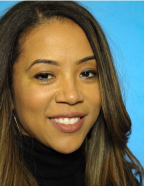 Damira Grady, Ph.D., LPC
Damira Grady, Ph.D., LPC
Adult Education Director
YWCA Southeast Wisconsin
Dr. Damira Grady is an education administrator with a professional interest in the areas of DE&I, adult education, counseling, career planning, and professional development. Dr. Grady most recently served as the director of student accommodations and interpreting services at Milwaukee Area Technical College. On Sept. 1, Dr.Grady will join the University as the Associate Vice Chancellor for Inclusive Excellence and Chief Diversity Officer. She earned her Ph.D. in the advancement of learning and service in higher education from Cardinal Stritch University, her Masters of Science in educational psychology with an emphasis in community counseling from the UW-Milwaukee and her Bachelor of Science in educational studies from UW-Milwaukee.

